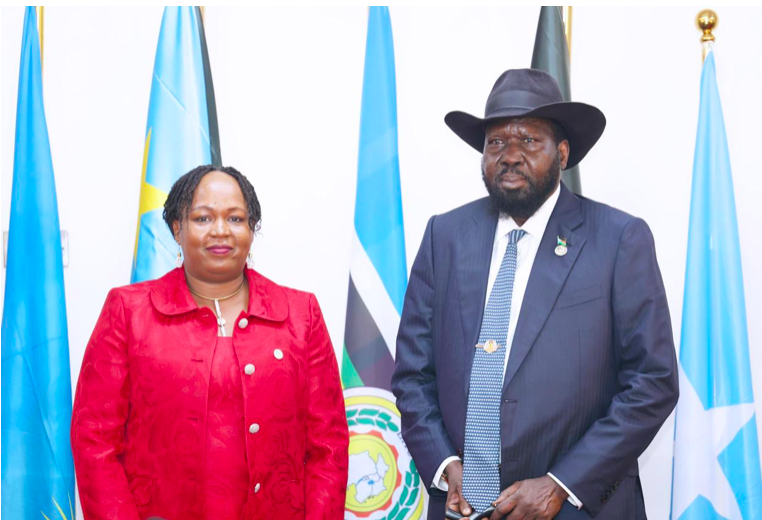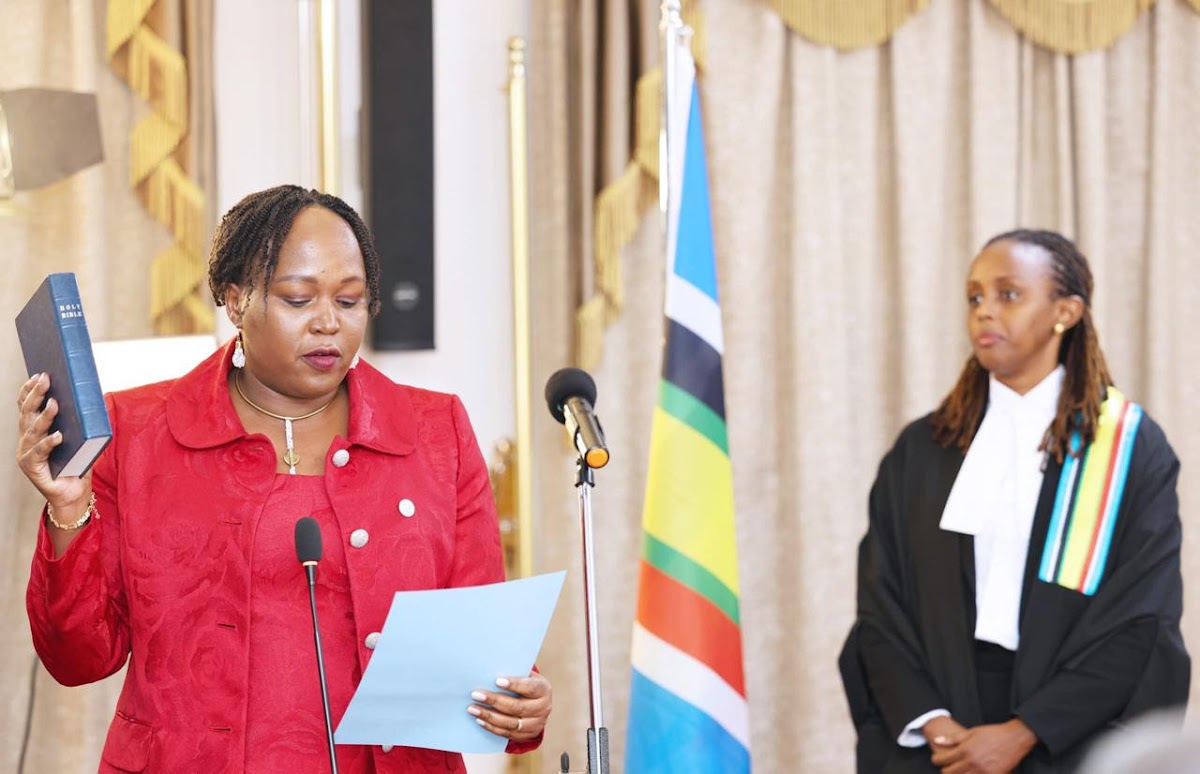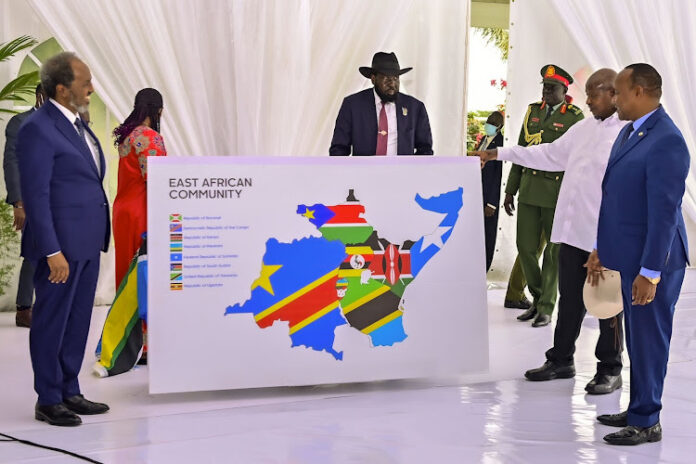By Morris Odhiambo
Nairobi, Kenya: What progress has the Community made in implementing the Common Market Protocol (CMP)? What challenges is it facing? Is the East African Community (EAC), in fact, facing multiple crises? If this is the case, in what ways can these crises be solved? What role can citizens and their formations play in resolving the crisis?
These questions are likely to feature, in different permutations and combinations, in the East African Civil Society Organisations (CSO) Summit that will be held between 18th and 21st June 2024, in Arusha, Tanzania. The parley will be hosted by the East African Civil Society Organisations Forum (EACSOF), the “apex” body for CSOs in the EAC.
The theme of this year’s Summit is “Harnessing technological advancement to resolve climate change challenges and ensure food security in the region.” It is expected that 300 CSOs from the 8 countries that are members of the EAC will attend.
My commitment to regional integration stems from three key sources
The first one is that I am a child of regional integration! I was born in a small village called Holili near the Kenya-Tanzania border. My parents were both Kenyans from Nyakach, Kisumu. My father had moved to that part of the region in the context of the then emerging phenomenon of post-independence labor migration within the EAC.
My family’s crossing back to Kenya was a result of the collapse of the EAC in 1977. The then president of Tanzania, Mwalimu Julius Nyerere, tired of verbal exchanges with Kenya’s (pseudo) capitalist “grass-to-grace” elite, opted to close the Kenya-Tanzania border.
My mother’s explanation is that the primary reason the family departed from Holili village was information to the effect that Kenyan children who had been born in Tanzania would not be allowed to leave with their parents. They would become “mali ya umma” (state property)!
It was my parent’s decision to leave Holili village at that crucial moment, and to settle in Taita Taveta, that effectively made me both a de facto and de jure Kenyan!
Second, I have been involved in high-level organizing in the EAC as an activist and scholar. I was the elected president of the regional EACSOF between December 2014 and March 2017. I have served as the chairman of EACSOF-Kenya, the most successful of the national chapters of EACSOF, since its founding in 2014.

EACSOF is an advocacy platform whose formation is in line with two important factors: (i) the acknowledgement by the EAC Treaty, that lack of citizen participation was an important factor in the collapse of EAC in 1977; and (ii) the scholarly treatment of regional integration schemes as legitimate sites of advocacy for CSOs. On the theoretical side, this position is supported by the New Regionalism Approach (NRA) paradigm.
I was part of the team that negotiated the Consultative Dialogue Framework (CDF), EAC’s answer to participatory regionalism. In addition, my scholarly interest and intellectual grasp of regional integration issues and my style of debating have made me friends and enemies in the region in equal measure. I was once threatened in one of the EAC partner states by a very senior government official because of EACSOF’s regional activities!
Let’s now turn to the health of the EAC. The most visible sign of good health for the EAC today is what has been achieved by its widening and deepening strategy. The widening strategy has netted South Sudan, the DRC, and Somalia in quick succession. The EAC has also been recognised as the fastest growing RECs in Africa in terms of intra-regional trade. Of course, one has to unpack this for a better understanding of the dynamics (e.g. who is trading with whom?).

However, in the midst of the widening and deepening strategy, the EAC has been going through a number of crises. The most significant one is the crisis of leadership. The allegations of corruption made against Dr. Peter Mathuki, the immediate former secretary general of the EAC, exposed what could have been a well-kept secret for many years at the EAC.
It was not the first time that such allegations were being made against the secretariat of EAC. Indeed, during the time of the Burundian SG, Ambassador Liberat Mufumukeko, similar allegations were made touching on corrupt practices in the recruitment of EAC staff. Just like the situation is now in regard to the allegations against Dr. Mathuki, it is not clear whether these allegations were investigated.
As an “international secretariat” the EAC is removed from national systems of accountability, weak as these may be. The politicians who serve at the East African Legislative Assembly are not elected by citizens. Many times, as the Kenyan situation has demonstrated, participation in EALA is taken to be a mark-timing venture before one’s political fortunes improve back at home. In this sense, serving in EALA is merely an elite reward system.
The CSO Summit will be taking place in the middle of a cash crisis at the EAC. Recently, the East African Court of Justice (EACJ) suspended its June sessions, which were to be held in Kigali, Rwanda. Before that, evidence had emerged of partner states failing to remit a total of $40 million to the EAC. Whereas non-remittance of dues by partner states has been a common occurrence in the history of the Community, this is the worst it has been for years.
What may not be apparent to many, is the fact that non-performance of the Regional Economic Communities (RECs) also impedes the continental integration scheme. The eventual formation of the African Economic Community (AEC) is pegged on the RECs. The Abuja Plan of Action (APC) defines the RECs as the building blocks of continental integration.
Additionally, the much praised African Continental Free Trade Area (AfCFTA) is also pegged on the RECs. Article 19(2) of its founding instrument provides that, “State Parties that are members of other regional economic communities, regional trading arrangements and custom unions, which have attained among themselves higher levels of regional integration than under this Agreement, shall maintain such higher levels among themselves.”
Since the RECs precede the AfCFTA by many years, the article quoted above was put in place to take advantage of the progress that has already been achieved by the RECs in building their own internal systems.
On the business side of the equation, the old story of Non-Tariff Barriers (NTBs) continues to hamper the progress of the Community, especially the implementation of the Common Market Protocol (CMP). The Covid-19 pandemic and its aftermath revealed some of the most petty and annoying disagreements in relation to the free movement of goods and services across the region.
In overall terms, the “freedoms and rights” entrenched in the CMP (free movement of goods, services, persons, capital and labor; and the rights of establishment and residence) have not been achieved to any significant degree. These are the cornerstones of any successful regional integration scheme.
The African continent continues to lag behind in terms of intra-regional trade, which stands at less than 10%, while in Europe, it is at 60%! Africa’s contribution to global trade is a paltry 3%! This signifies low levels of production and begs the question: Will the African continent only excel at being one huge dumping market?
The CSOs meeting in Arusha must, therefore, ask the hard questions! The conversations have to go beyond the narrowed down topic of climate change, food security, and whatnot! It is, indeed, about the future of the continent and its people.
Morris Odhiambo is a scholar, journalist, writer, consultant, and social rights defender. He is the founding Vice-Chairman and a member of the Diplomacy Scholars Association of Kenya (DIPSAK).














